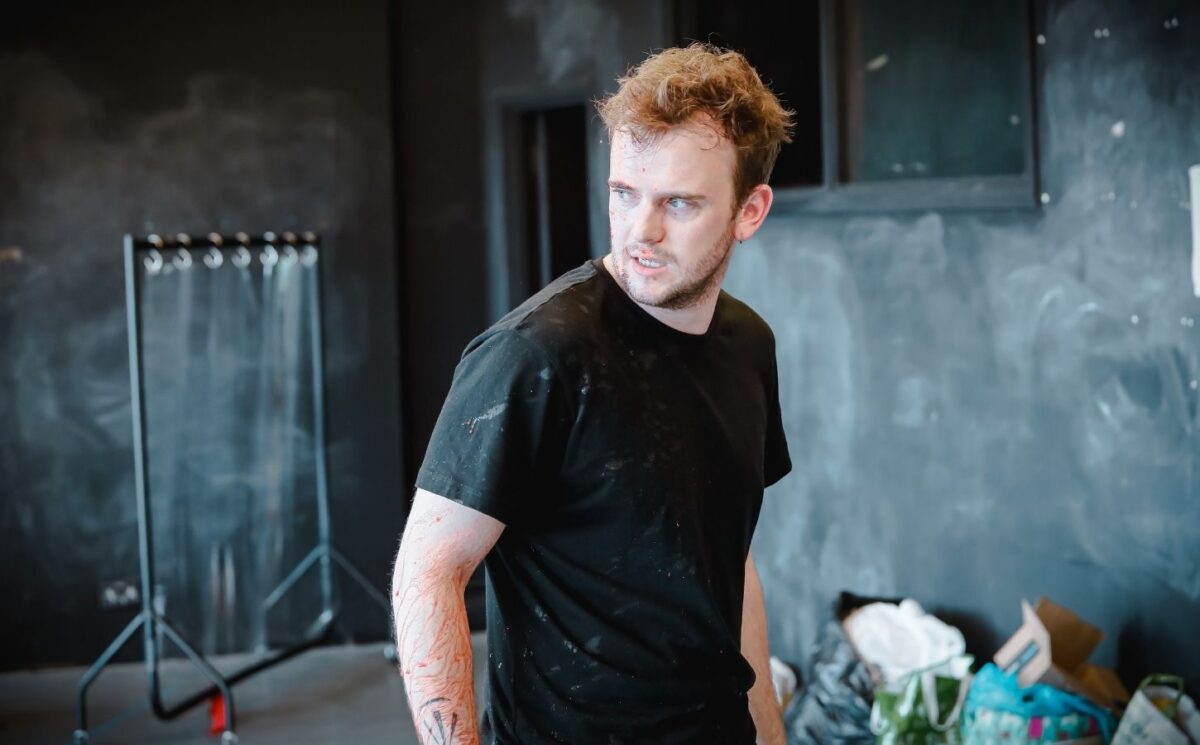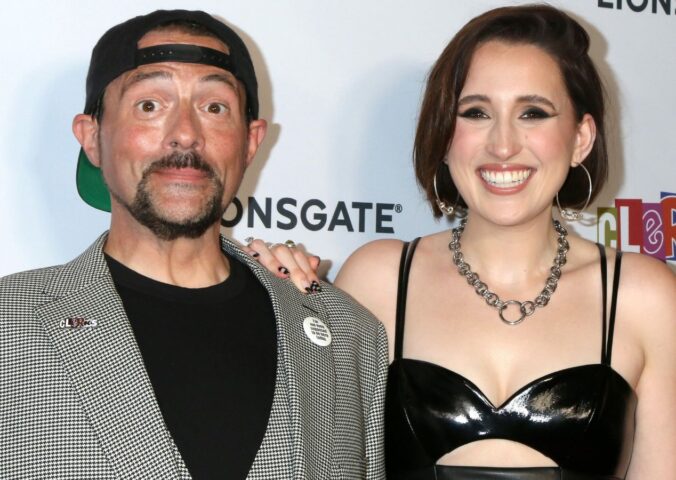There are often discussions around the best ways to reach people with a vegan message. The more common methods being street outreach, through food, and through protesting or campaigning.
But what about through entertainment, and specifically theater? With around 16 million people attending the theater each year in the UK, could this be an untapped avenue for awakening people’s compassion through watching a theater show? It’s a unique concept and one that we have not really seen much of before.
Plant Based News spoke with Patch Plays, a vegan theater company that is looking to break the mold and create thought-provoking plays that are vegan in nature but that would appeal to a wider audience. And that’s exactly what they are hoping to achieve with their newest production, Blood on Your Hands, showing at the Southwark Playhouse in Borough, London, from January 17 – February 3, 2024.
Patch Plays is in its early days having been founded by Anastasia Bunce only four years ago, but it’s already achieved critical acclaim with Meat Cute, which told the story of a woman trying to veganize her Tinder dates. The show ran for a full month at the Edinburgh Fringe Festival 2023.
Slaughterhouse work: a hidden issue
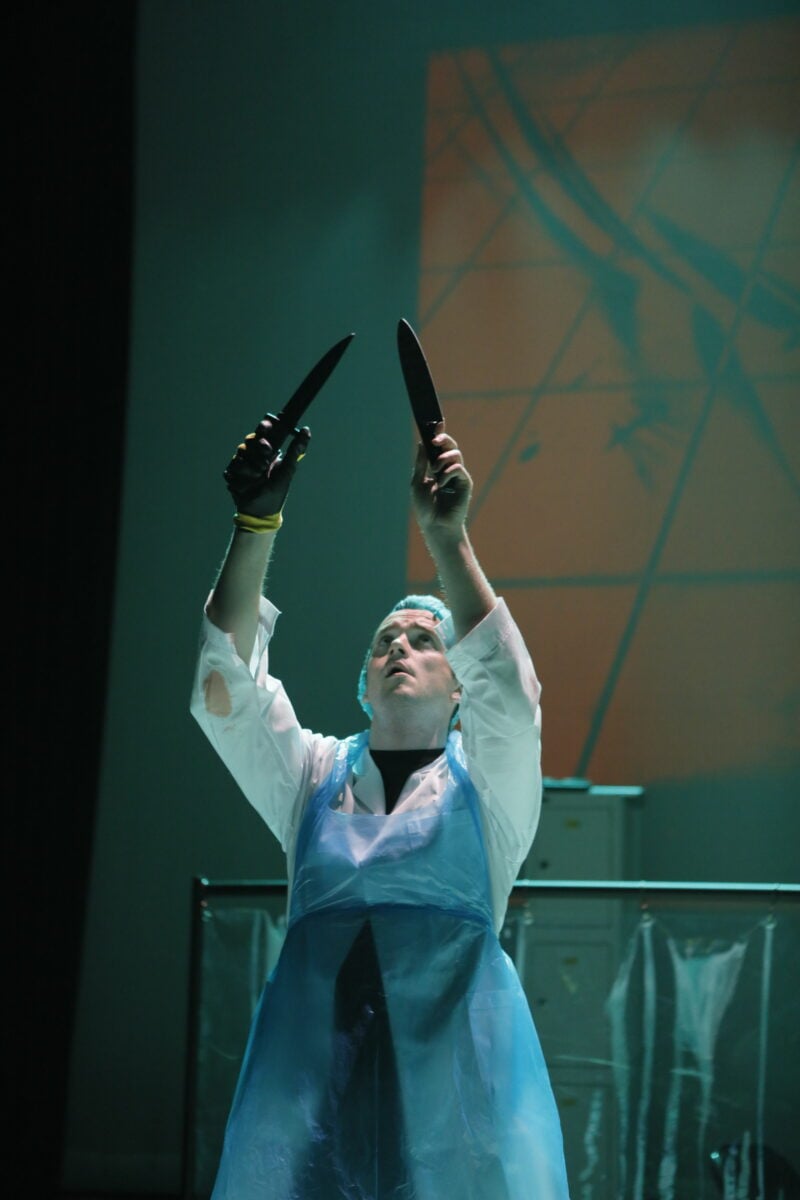
Blood on Your Hands tackles a looming issue that is not often at the forefront of vegan discussions – the impact of the animal agriculture industry on the slaughterhouse workers themselves. The majority of these workers are migrants, or people from lower socio-economic backgrounds, who are taking the jobs out of absolute necessity rather than choice. The play touches on themes such as the conditions for workers, the mental health issues that are created by such grueling work, the low pay, and the question around the necessity of this level of demand for animal-derived products. This production has been described as “sinister, moving and electric” by London Theatre Reviews.
We spoke to Anastasia Bunce, the director of the play and founder of Patch Plays, and Grace Joy Howarth, the writer of Blood on Your Hands. Both of them are vegan – Grace since birth and Anastasia for nine years.
So what is the play actually about? Howarth says, in simple terms: “it’s a play about two slaughterhouse workers. These two men form a friendship in the break room of a slaughterhouse.” You could, she says, see it as a vegan story told through a “human lens”. Howarth and Bunce found that people tend to switch off when the story is “animal-focused.”
“What we see is that these two men are able to help each other survive this horrible workplace by being empathetic people,” says Bunce. Such a thread of empathy runs throughout the show, “as well as how important being compassionate is, which connects all human beings to veganism.”.
The rise of vegan media
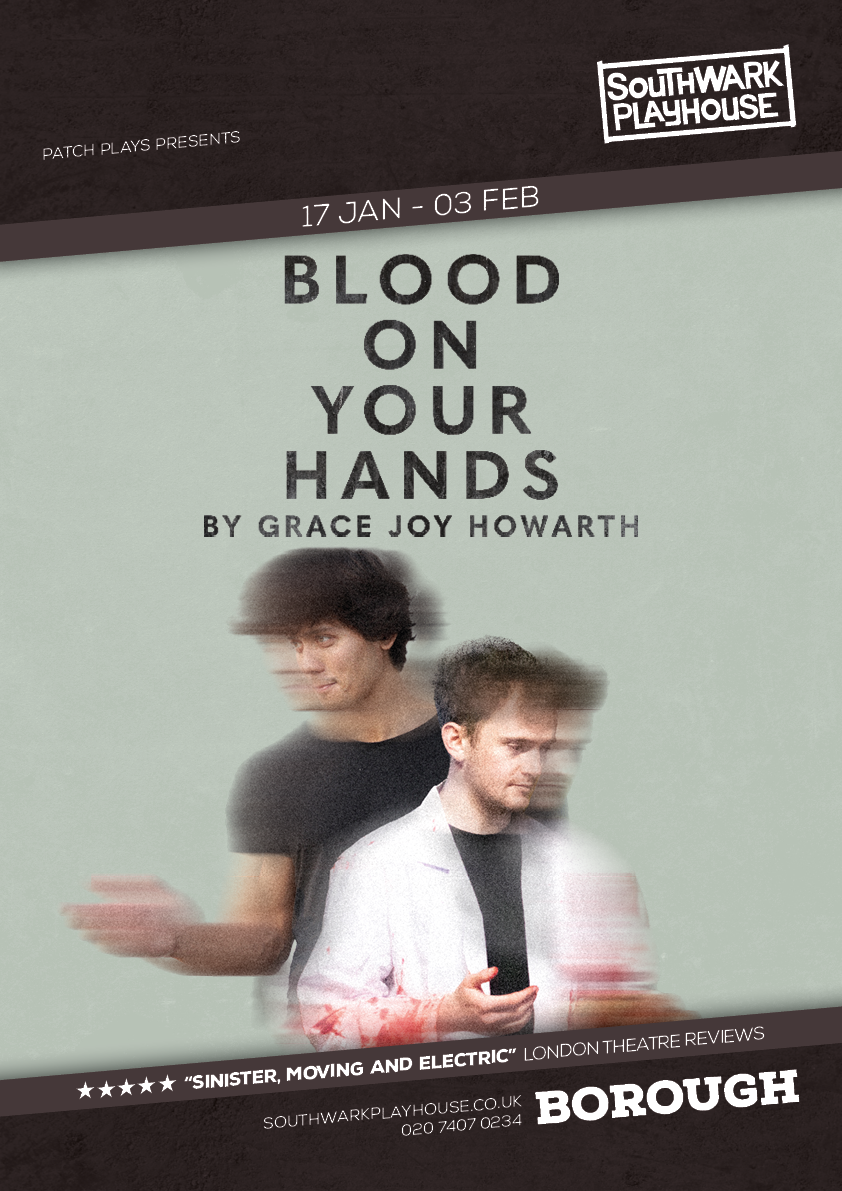
With the recent release of the Chicken Run sequel earlier this month, a film that wasn’t necessarily vegan but that played on vegan themes, we asked if Blood on Your Hands was in a similar vein or intentionally vegan. “Yes, from my perspective as a writer, veganism was always the intention I went in with,” Howarth says. “To me, as a vegan, the idea of being a slaughterhouse worker is the least imaginable thing possible. So to find a voice that was so different to mine, but to spread the vegan message through it was something that I thought was an effective way of connecting with those who might ordinarily be put off.”
Both Howarth and Bunce did a lot of research for writing the play and to bring it alive as a theater show, which saw them interviewing slaughterhouse workers in the UK, watching footage of the slaughter process and trying to really come to terms with the conditions these workers are facing. According to Howarth: “Obviously, it’s a brutal line of work and there are lots of injuries on the job as well as lots of mental health issues – depression, anxiety and something called perpetrator induced traumatic stress which can cause a lot of nightmares. This is when someone feels like they’re being the perpetrator, not of a crime, but an action I guess. It can bring up that PTSD-like experience.” She also mentions that it’s the “most vulnerable” sections of society that are targeted to work in these facilities.
Exploitation of slaughterhouse workers
Bunce adds that there is a lot of exploitation due to this, with many being on “zero hour” or temporary contracts and very low pay. They also don’t have much stance or grounding to be able to fight for equal pay, due to their status as migrant workers.
When asked if they thought people in the audience would be aware of the themes touched on in the play, Bunce says: “I don’t think most people know anything about what goes inside slaughterhouses, other than what happens to animals. But certainly not the extent of that and not the effects on the factory workers.” She continues: “Even when I’ve been talking to my friends about the show, they are shocked. So I think it will be a surprise.” Howarth adds that “if everyone knew so clearly how terrible it was, I think it would have an impact on sales.”
With a production like this, the question is: what message can audience members take away from seeing it? From Bunce’s perspective the key is that people begin to think about how their actions can impact people who are having to work in these factories. “Everyone wants to be a good person,” she says. “Everyone wants to be an empathetic human being. No one wants migrant workers to be exploited. I want people to take a moment to consider what they can do to be a part of that change.”
From Howarth’s perspective, she hopes it will “put a face to that very faceless profession.” She adds: “If you go into a shop, even for vegans, we don’t necessarily think about the worker who’s picking our fruit or the people who are packaging things. I want people to connect it to that and realize that there are people that are being exploited along every part of the food production system.” She says the play “humanizes that role,” and she hopes that audience members will be rooting for the two characters and feel empathy and compassion towards them and their very real and tangible struggles.
‘Creating a bit more compassion in the world’
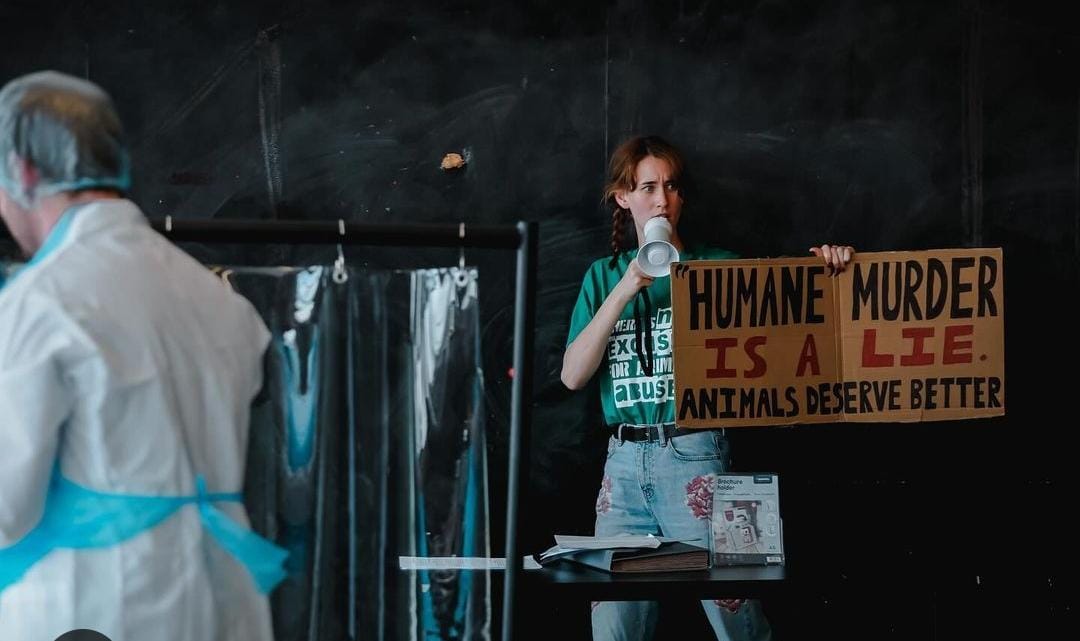
The play is not consciously marketed as a vegan play in order to try and target a wider audience. People from all walks of life go to the theater to see thought-provoking shows, and Blood on Your Hands should be no different.
Howarth adds one final point: “We’re not expecting people to walk out 100 percent Vegan, but it’s just about spreading awareness, making it more well known to everyone and hopefully creating a bit more compassion in the world. That’s what we’re trying to do with it.”
Blood on Your Hands is opening at the Southwark Playhouse in Borough, London, on the January 17 until February 3. Any vegans who want to get their hands on a discounted ticket can use the code: VEGAN12.
TW: This production contains discussions around addiction, war, animal cruelty, and suicide. It also contains visual depictions of blood.
